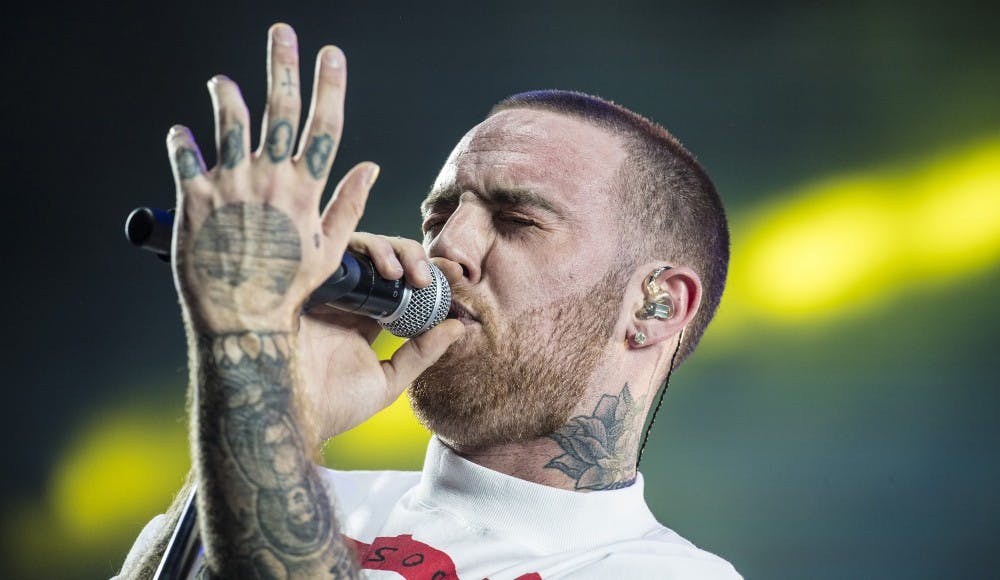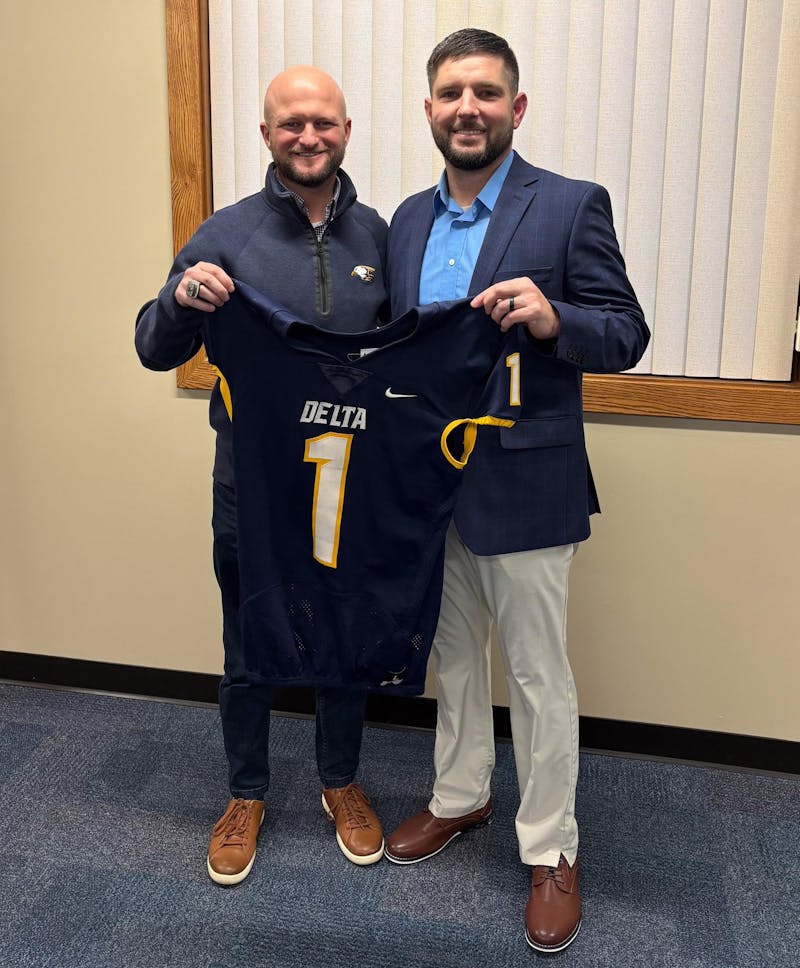
Blake Williamson is a junior journalism major who writes "Blake's Beats" for The Daily News. His views do not necessarily agree with those of the newspaper. Write to Blake at bdwilliamson@bsu.edu.
Editor's Note: The Substance Abuse and Mental Health Services Administration(SAMHSA) Hotline is a free, confidential 24-hour information service for those struggling with mental or substance use disorders. They also offer referrals to local resources such as support groups, treatment facilities and more: 1-800-662-HELP(4357)
I was in Target when I got the news. I feel my phone vibrate, and I see a text that contains a sentence I won’t soon forget: “Mac Miller is dead.”
I thought it was a joke, one of those celebrity death hoaxes that pop up every so often. I went to Twitter hoping to find a funny tweet from Mac that all of this was a joke, and that he is alive and well. I open up the app, and my worst fear is confirmed. I see tweet after tweet, an online memorial from friends and fans, all describing the ways that the kid from Pittsburgh had impacted their lives.
I was one of those kids. A pimple faced, snot nosed 7th grader who found a reason to smile while listening to Mac’s music. I remember the first time I heard “Knock Knock”; it wasn’t just a song, it was an anthem. A song that deserves to be blasted out of speakers at only the highest of volumes. You could feel the joy that he exuded, you could tell he genuinely loved crafting his music. Through the rest of his career, his music grew but he never lost that joy, the curiosity to challenge himself and the listener.
There have been times while writing this piece, that I have had to walk away from the screen, my brain unable to find the right combination of words to eloquently express the mixed bag of emotions that I am currently feeling. It becomes apparent in those moments that Mac had his problems.
According to Associated Press, police found Mac unresponsive in his home in Los Angeles on Friday, Sept. 7, and declared him dead shortly after. While his cause of death has not yet been confirmed, many of his songs wrestled with issues involving drug use and depression. I don’t think connecting those struggles with his premature death is an unfair thing to do.
When I pressed play on his music, I found solace, all of the stress washed away. His music was a lifeline, it was deeply personal and I felt connected to every note and and hung on every syllable. It almost makes me shed a tear on the keyboard, the thought of not having that music to take into the next phases of my life, to not have that friend to check in on.
We don’t want to look too much into the ever-present issues when the music is so great. It’s just, “Yeah he is troubled, but did you hear track number four? It bumps!’’ We don’t take into account the epidemic that is facing the world of music that we so claim to love.
Mac is just the latest example of a scary trend that has faced music and the entertainment industry as a whole, for years. The glorification of drugs has reached an all-time high. To see how far you can push the limits with substance, but still live to tell the tale, has become normalized. According to a Bonn University Clinic study published by the National Institutes of Health, 220 celebrities who died a drug-related death between 1970 and 2015 were identified and studied. The rate in drug-related deaths increased in the 21st century compared to the 20th century according to the study, with most celebrities dying between the ages of 25 and 40.
We saw it last year with Lil Peep, who died from an overdose of fentanyl and Xanax at 21, though he had a medley of other drugs in his system at the time of his death too. We saw it with Amy Winehouse, as well, who died in 2011 from accidental alcohol poisoning.
The key is to not put these performers who we admire on such high pedestals, giving them somewhat of an invincibility complex. We have to treat them as we would a close friend, somebody who could just use a helping hand. It’s about simply reaching out to anybody and everybody you think might be going through something and sending some kind words. Something as small as that could really make all the difference
There were records where Mac was blatantly crying out for help, and we just listened. We did nothing. He talked endlessly about his constant battle with substances, a battle that he fought regularly and would eventually lose.
We as a community tend to forget that these entertainers are people, and more than just a name in a playlist. You start to ask yourself questions, how could we have helped them? Could they still be here right now?
The truth is we’ll never be able to answer these questions. All we can do is remember Mac, and every other artist who has died from any substance or mental illness, and keep their music and spirit alive. Which we are already doing, according to XXLMag his streams are up 970 percent since his death.
In the eulogies that have come out since Mac’s passing, nearly every friend, every collaborator and every fan that got to meet him all speak on one thing: just how genuine of a person he was. That says more than any song could ever begin to say. We’ll cherish his music and the memories he gave us, but what we’ll remember is his beautiful soul. The kid from Pittsburgh made it.
Thanks for everything Easy Mac with the Cheesy Raps. We love you.





The Daily News welcomes thoughtful discussion on all of our stories, but please keep comments civil and on-topic. Read our full guidelines here.